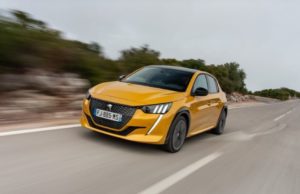The electric car finally seems to be on the verge of a breakthrough, offering significant environmental benefits, especially in urban areas. Innovative business models are emerging that should boost consumer acceptance and overcome remaining obstacles, such as high battery costs, green electricity supply and charging infrastructure.
Several European countries, as well as the US, Japan, China and others, have recently announced plans for the introduction of electric vehicles. These plans include tax incentives, funding for research into batteries and electric vehicles and plans for the construction of charging infrastructure. Major cities such as London and Paris have announced electric car-sharing schemes, while government departments and companies with large fleets are purchasing electric vehicles.
Are electric cars better for the environment?
Research has shown that electric cars are better for the environment. They emit fewer greenhouse gases and air pollutants than petrol or diesel cars. And this takes into account their production and the electricity needed to keep them running.
 If you are thinking of buying or leasing an electric car, check out some online leasing offers for the best cars and prices. You can choose a Tesla, but also an electric car from another well-known brand. Think for example of the Peugeot 208 private lease.
If you are thinking of buying or leasing an electric car, check out some online leasing offers for the best cars and prices. You can choose a Tesla, but also an electric car from another well-known brand. Think for example of the Peugeot 208 private lease.
The great advantage of electric cars is the contribution they can make to improving air quality in towns and cities. Since they have no exhaust, pure electric cars do not produce any CO2 emissions when driven. This significantly reduces air pollution.
Electric cars have been inaccessible for a long time due to the high cost of acquisition. However, it is clear that the price is getting lower and that they are being purchased more and more often. If you then also opt for private leasing, the purchase price is no longer a problem at all.
How does electric car production affect the environment?
However, a lot of energy is used in making electric cars. Even if you include the manufacture of batteries, electric cars are still a greener option. This is because of the reduction in emissions that occurs during the life of the car.
Emissions from the production of an electric car are usually higher than those from an ordinary car. This is due to the manufacture of lithium-ion batteries, which are an essential part of an electric car. More than a third of the lifetime CO2 emissions of an electric car come from the energy used to make the car itself. As technology advances, this is changing for the better.
Reuse and recycling of batteries is also a growing market
Research into the use of used batteries is looking for ways to reuse batteries in new technologies such as electricity storage. One day, we could all have batteries in our homes used to store our own energy. Opportunities like this will reduce the lifetime environmental impact of battery manufacturing.
Integrated concepts for transport and energy
To be a success, the electric car must be marketed as part of a total transport and energy concept and not as a stand-alone technology. For millions of vehicles to be connected to power grids without harming the environment, there needs to be an integrated approach to electricity supply and demand to ensure the use of green electricity sources. All in all, things are moving in the right direction!
